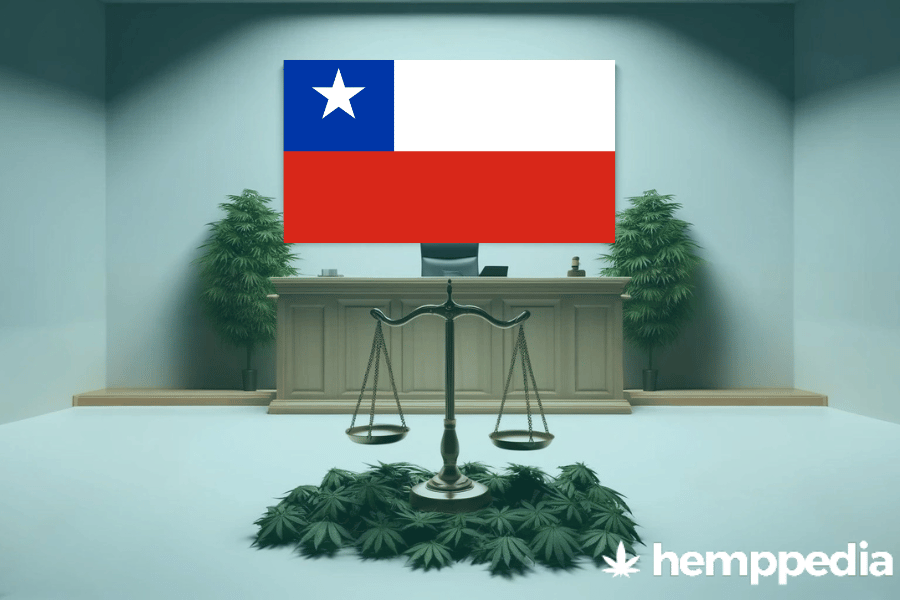Is CBD legal in Chile?
TL;DR
Understanding the legal landscape concerning cannabidiol (CBD) can be tricky due to diverse regulations in different jurisdictions. In Chile, despite the country’s historically conservative stance on drugs, the use of CBD has been decriminalized with certain limitations. It is, however, essential to note that while it isn’t illegal, specific regulations must be observed.
CBD: Derived from hemp or marijuana, CBD is a non-intoxicating compound with potential therapeutic benefits.
Global Trends: While many nations are progressively relaxing their cannabis laws, there’s a shared trend of treating CBD distinctly from marijuana due to its lack of psychoactive effects.
- Usage: Permitted as a pharmaceutical product.
- Possession Limits: No explicit possession limit, but only allowed if prescribed by a doctor.
- Legal Distinction from THC: Unlike THC, CBD is not psychotropic and is regulated separately.
Overview of CBD Legislation in Chile
Despite cannabis containing THC remaining illegal in Chile, CBD, due to its non-psychoactive nature, is governed under distinct legislation. Approval for restricted use of CBD products has been in force since 2015, allowing its use for medical purposes. It is thus legally categorized as an ‘pharmaceutical product’ under the jurisdiction of the Institute of Public Health, an appendage of Chile’s Ministry of Health.
- CBD: Resides under a legal gray area. Although not fully legalized, it is decriminalized for therapeutic use.
- Hemp Vs. Marijuana: Hemp is legally distinguished from marijuana due to its low THC content and is used as the primary source of CBD. While the cultivation of both plants requires a permit, hemp for CBD production is sometimes allowed with appropriate licensing.
- Regulatory Bodies: The Institute of Public Health regulates pharmaceutical products, including CBD.
- Conditions and Restrictions: Only CBD with no THC content is allowed, and such products can only be purchased via prescription or at licensed pharmacies.
Historical Context
Historically, all forms of cannabis, including CBD, were illegal in Chile. This changed in 2015 when Chilean lawmakers made an exception for cannabis used for medicinal purposes by decriminalizing CBD. However, it was not until 2017 that patients could legally access CBD via prescription.
Possession, Use, Cultivation and Sales
While consumption and possession of CBD products are decriminalized, cultivation and sale without a permit are still considered criminal activities. These permits are notoriously difficult and costly to obtain, though it’s not impossible.
- Possession & Use: Personal use is permitted, and CBD products can be obtained through a prescription.
- Cultivation: Cultivating hemp for CBD production requires a permit from the Agricultural and Livestock Service.
- Sales: CBD products must be sold in approved pharmacies.
Enforcement and Penalties
While Chile has softened its stance on CBD, it can still enforce heavy penalties for non-compliance with CBD regulations. Anyone caught violating these laws may face hefty fines and even imprisonment.
Medical CBD use is somewhat more lenient, and patients can access CBD for medical use via prescription from their doctors.
Comparative Analysis
Compared to many other Latin American countries, Chile’s approach to CBD is moderately progressive. While countries like Argentina and Uruguay have more liberal cannabis laws, including legalization for recreational use, Chile’s focused decriminalization of CBD for medicinal use differentiates it from most of its neighbours.
Conclusion
In conclusion, while the use of CBD is not entirely legal in Chile, it has been decriminalized for medicinal purposes. However, there are strict regulations controlling its cultivation and sale, and efforts to comply with these rules should be observed. As the global trend towards cannabis law reform continues, it will be interesting to see how Chile’s CBD laws evolve.





